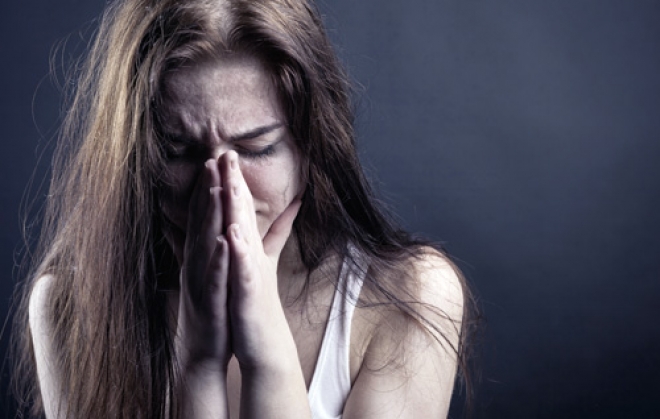DOMESTIC VIOLENCE
Breaking the silence

One in four women will experience domestic violence during their lifetime, according to the National Coalition Against Domestic Violence.
More alarmingly, domestic violence incidents are not typically isolated events; many times they are part of a cycle in an abusive relationship.
Concerning domestic violence, the most important call to action could be education – understanding the cycle of violence, the signs and resources available to victims.
“Oftentimes, worse than the physical abuse is the verbal and emotional abuse, which can make you feel like you are not worthy and do not deserve to be treated with respect,” Shobana Powell, licensed master social worker and bilingual counselor at The Center for Families, said. “The first step is to create a safety plan, which details who are the trustworthy and supportive people in your life and where you can go if you need a safe place to stay. It may not be safe for you to write that plan down or keep it on your person, but it is important to develop that plan so you can be prepared in advance, rather than trying to make decisions in a time of crisis.”
For victims of domestic violence, creating a safety plan can be difficult depending on the circumstances of their home life, but it is a necessary strategy.
“It’s also important to keep your essential documents – Social Security card, birth certificate, passport, driver’s license, etc. – some where safe, whether it be in a lock box or at a trusted friend or family member’s home,” Powell said. “Developing a safety plan can be challenging, especially if your partner has isolated you from your loved ones, which is a very common power and control tactic. If you do not have support from family or friends, it can be very helpful to seek the guidance of a counselor to create a safety plan that includes available resources in the community.”
Abusive relationships and domestic violence are often grounded in power and control. An abusive relationship can manifest in a number of ways, giving signs that the relationship is unhealthy and to seek help.
“Power and control dynamics are almost always present in abusive relationships,” Powell said. “This means that your partner tries to manipulate and control you in a variety of ways.”
Some forms of control and power in a relationship include financial abuse, verbal, physical and psychological abuse, using the children as a means of threatening and manipulation, sexual abuse, isolation from friends and family, controlling behavior and jealousy.
Powell, who has spent a number of years providing counseling services to survivors of domestic violence and worked as a forensic interviewer with the Brooklyn District Attorney’s Office in New York, explained that domestic violence is quite often a pattern of behavior.
“Domestic violence incidents are rarely isolated,” she said. “In fact, in my five years of working with survivors of domestic violence, I have never heard of a singular incident of abuse. In some relationships there is a cycle of tension building, an explosion of abuse, and then a phase of apologies and seeking forgiveness. However, it does not stop at the apology; the pattern continues, returning to tension growing, leading to an outburst, and then what seems like another sincere apology. Oftentimes, when someone can recognize the forms of abuse and the pattern of abuse in their relationship, they gain a sense of understanding or control over the confusion of what they have been experiencing.”
Powell said abuse will typically worsen if the victim is pregnant and that strangulation is a major predictor of domestic violence homicide.
Powell stresses the importance of hope and that resources are available to get help.
“The Taylor House is a domestic violence program in Shreveport-Bossier,” she said. “They have a 24-hour crisis line with counselors available to help you develop a safety plan and connect you with the appropriate resources. They also have a safe house, should you be interested in leaving your current situation. They offer domestic violence support groups, legal advice and case management to help meet your needs.
“The Center for Families offers individual counseling, whether you have left an abusive relationship or are currently involved in one,” she continued. “Our counselors are warm and compassionate and meet you where you are, understanding that relationships are complex and that you come to us seeking support and for your voice to be heard.”
Just as important as seeking safety and help while in an abusive relationship is ensuring future safety and preventing further victimization. “If you can maintain relationships with family and friends, that support can be life-saving,” Powell said. “Also, you can always call the police should you feel unsafe. By choosing to press charges or even just going to the hospital for your injuries, you create a paper trail of the abuse that has been happening.”
The Louisiana Statewide Domestic Violence Hotline number is 1-888-411- 1333. The Taylor House can be reached at 226-5015 and to make an appointment or talk with a counselor at The Center for Families call 222-0759.

